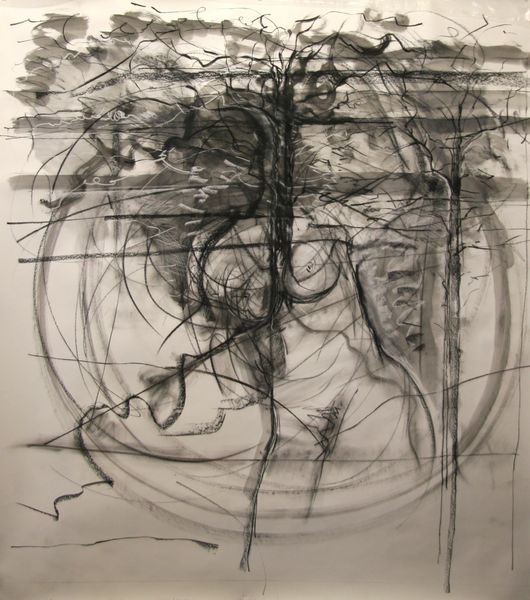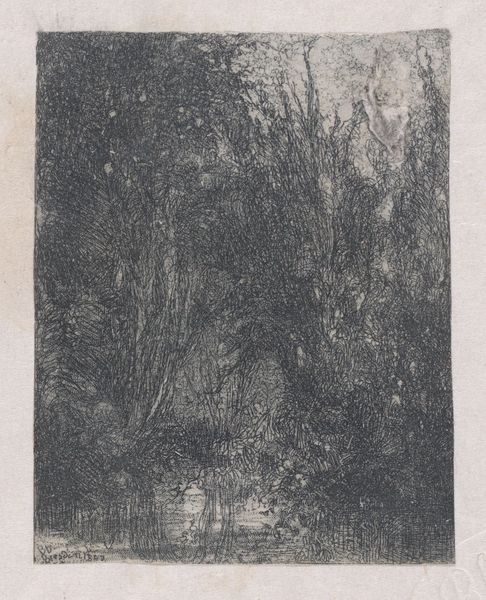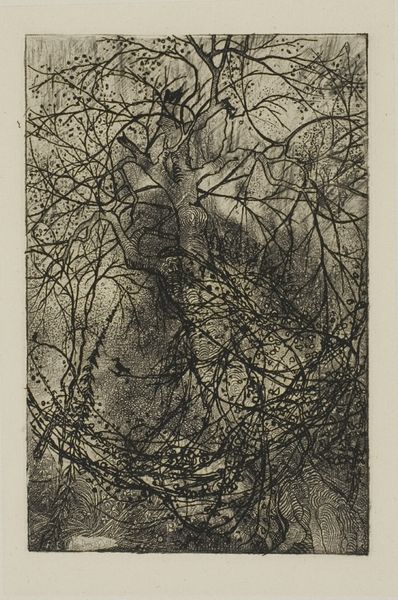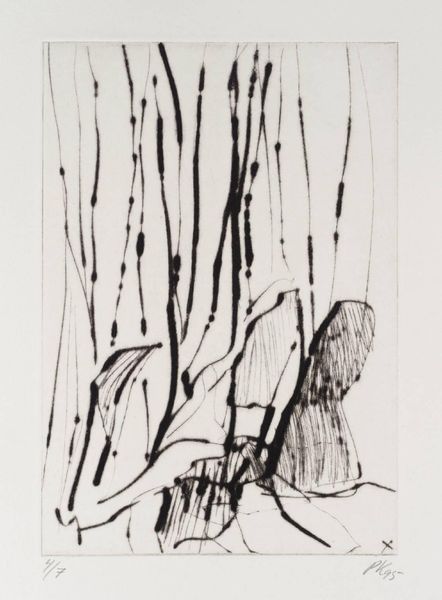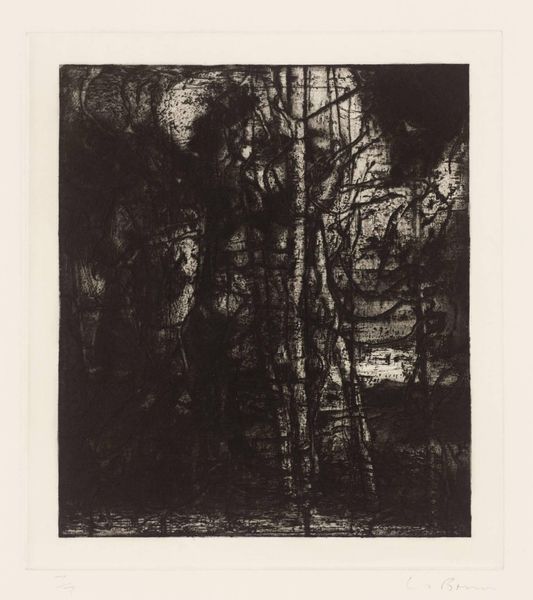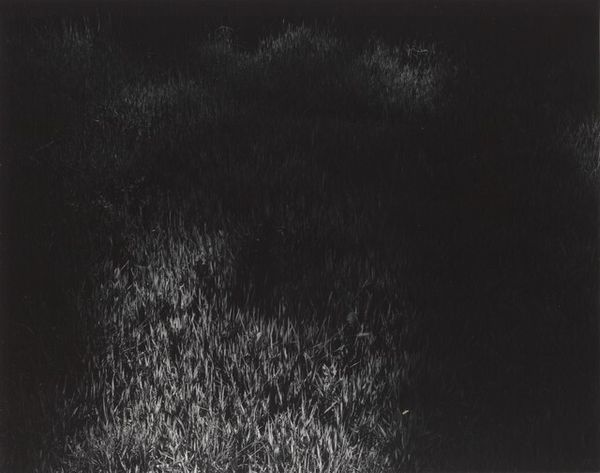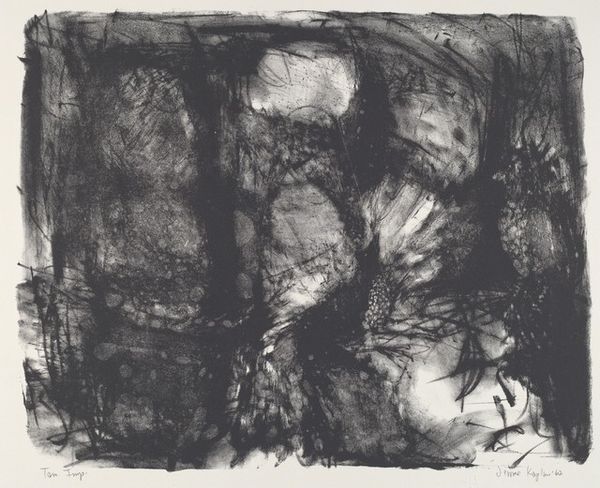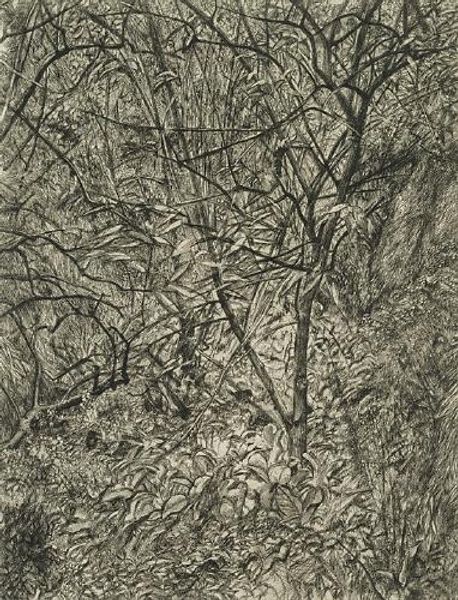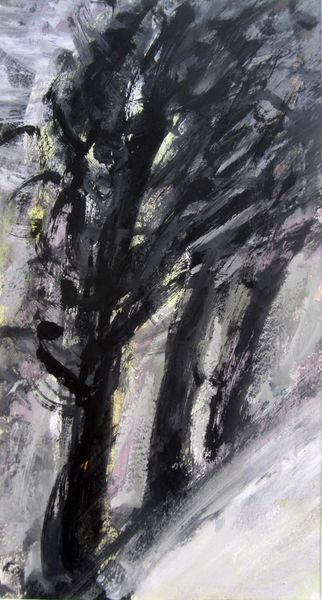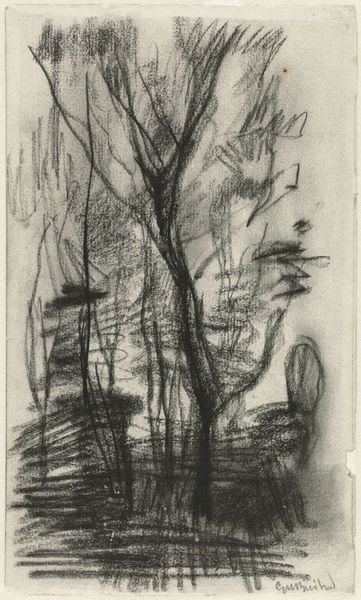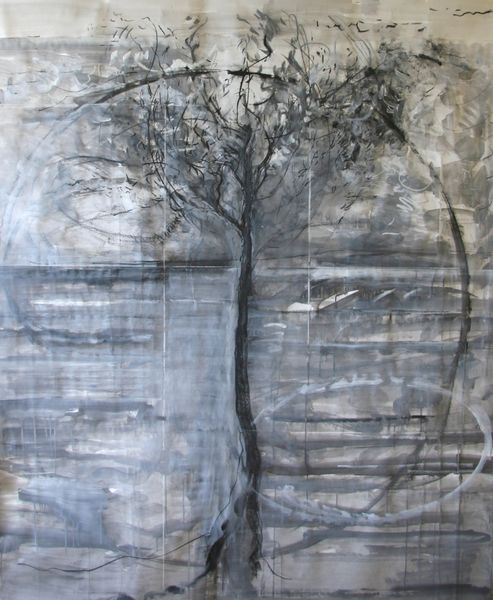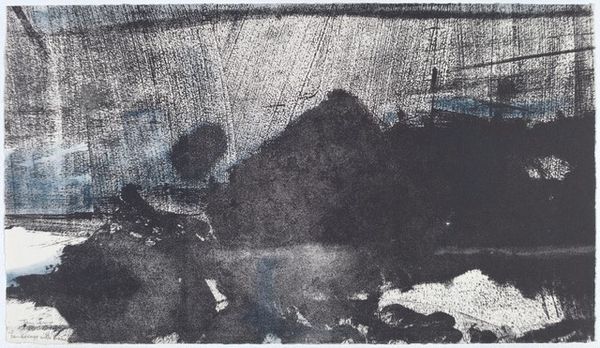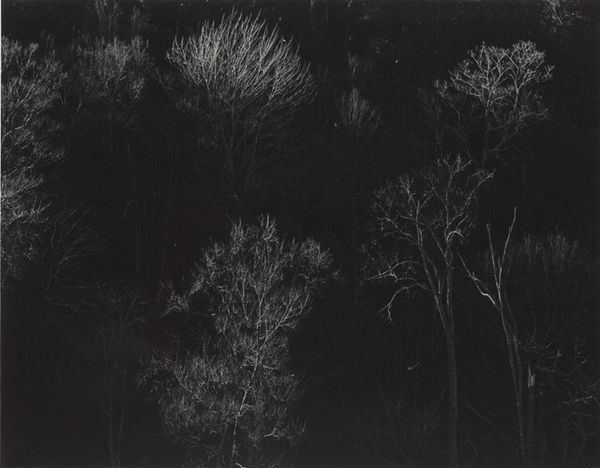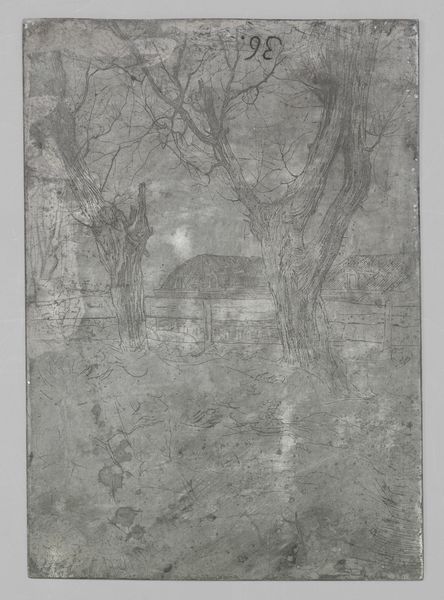
drawing, print, etching, graphite
#
drawing
# print
#
etching
#
landscape
#
form
#
line
#
graphite
#
realism
Copyright: Guntis Strupulis,Fair Use
Editor: Guntis Strupulis’s "Koki," created in 1965, is a striking etching, it seems. The somber, almost stark depiction of bare trees really captivates me. I'm curious, what do you see in this piece beyond the immediate representation of nature? Curator: The emphasis for me is on the labor invested in this piece, transforming raw materials like the metal plate, the etching acid, and graphite into this landscape. Strupulis’s process directly influences our experience of the artwork; each line etched, each gradation of tone achieved through the laborious application of acid, speaks volumes about the physical and intellectual effort involved. Editor: So, the value isn't just in the image, but also in the *making* of the image itself? Curator: Exactly. Consider how the printmaking process itself, as an act of mass production, shifts the work's accessibility and challenges the traditional aura of the unique art object. The labour is both artistic and almost industrial in nature, what do you think this juxtaposition achieves? Editor: I hadn't really considered the multiple impressions. I suppose it challenges that notion of unique artistic skill – that the artist's hand isn't just about unique vision, but about process, labor, and how it is being consumed. Curator: Precisely. It disrupts this idea of the unique genius artist. Look at the textures. The rough quality isn't an accident, but part of his intention of representing an objective social commentary. Do you agree? Editor: I think that's fascinating, actually. It is almost brutal the way he captures a moment of stark realism with a technique requiring such close work. It’s like the labor contradicts the message. Curator: Yes. The beauty found emerges from those contrasts. This piece, then, embodies the tensions between the handmade and the mechanically reproduced, raising profound questions about value and art's function. I’m pleased to say I never thought about it that way until now. Editor: Thanks, I appreciate your time, this opened my eyes a lot.
Comments
No comments
Be the first to comment and join the conversation on the ultimate creative platform.
